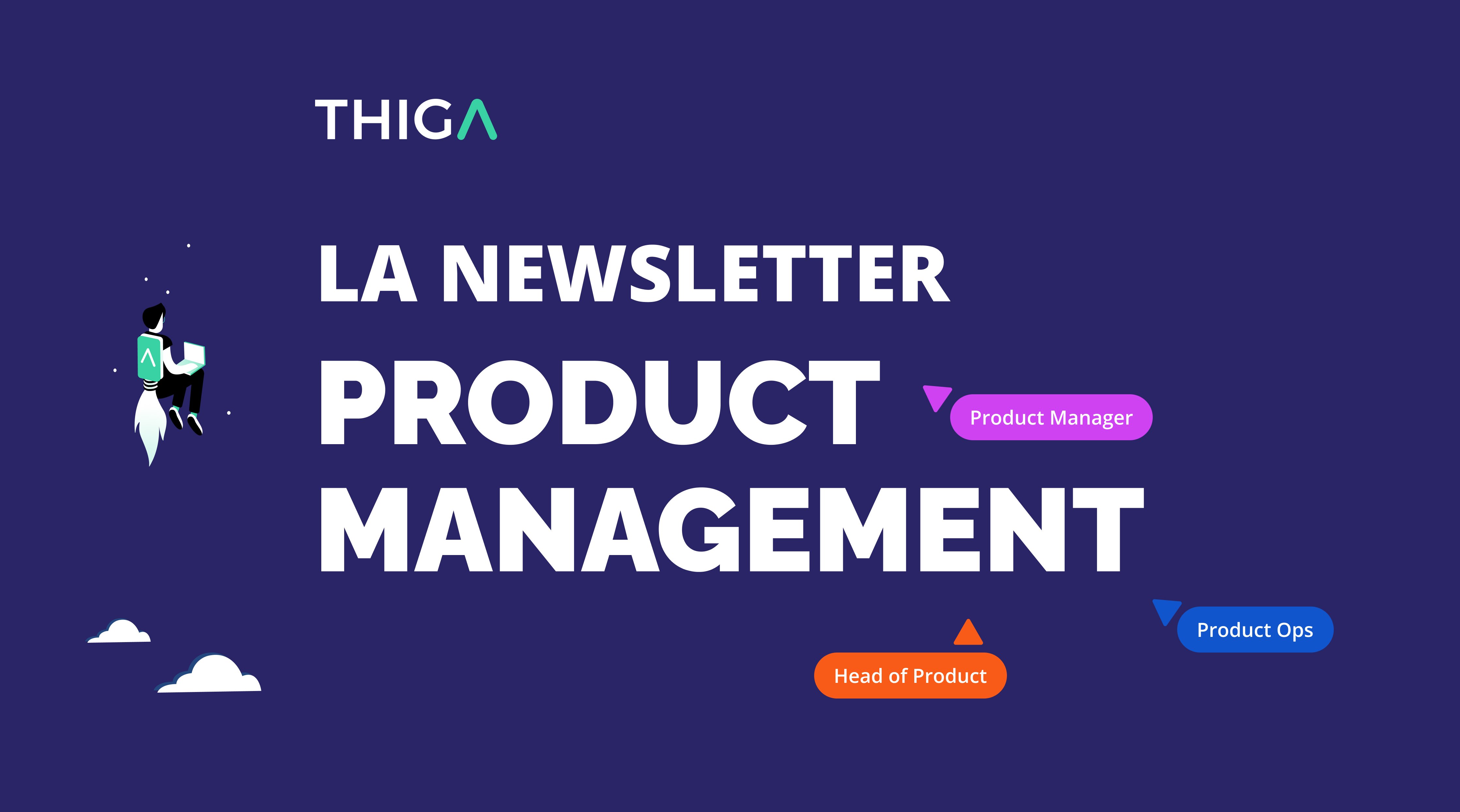Since its advent, artificial intelligence (AI) has revolutionized numerous sectors, and e-commerce is no exception. On the contrary, online retailers see AI as a golden opportunity to stand out from the competition while optimizing their operations. Between opportunities to seize and challenges to overcome, discover how Sephora, Salomon, and La Centrale are leveraging AI to usher in a new era.
"AI will transform every customer experience that we know." Andy Jassy, CEO of Amazon, knows what he’s talking about. As the head of the world’s largest marketplace, he regularly highlights AI’s transformative power in the industry during interviews.
This sentiment is shared by many other e-commerce players, who are engaging in a frantic race toward artificial intelligence. Are they right to believe that AI can revolutionize their sector? “Absolutely!” confirms Abdessamad Benhalima, Director of the Tribe Data & AI at Thiga, who believes the possibilities remain immense: “The global level of maturity is still average. There are still plenty of opportunities for many companies that have deployed one or two use cases but still have significant room for improvement.”
AI to boost operations
Contrary to what one might think, some of these use cases don’t require reinventing the wheel. On the contrary, AI can serve as a lever to optimize very concrete and inherent tasks in online commerce. Take inventory management, for instance. Predictive AI can anticipate stock shortages to ensure timely replenishment or, conversely, predict sales to avoid overstocking. “With sufficient data history in both quantity and quality, it’s possible to anticipate almost any issue, explains Abdessamad Benhalima. Even product delivery can be optimized with AI through route modeling to minimize travel distance. In fact, there’s potential for improvement throughout the entire supply chain!”
Beyond supply chain issues, AI can be a valuable asset on the ground. Behind the digital e-commerce platforms lie human hands ensuring their smooth operation. What if AI could assist them in their daily tasks? This use case proves particularly interesting in customer service, which poses a dual challenge: it is both an integral part of the customer experience and a potentially significant cost for e-commerce businesses. Yet, Thiga’s Principal of AI and Data considers it one of the most obvious use cases for generative AI: “When it comes to customer service, it often involves questions with answers embedded in a decision tree consulted by employees. It is entirely possible to integrate GenAI into a tool to accelerate response generation or even fully automate the process. Of course, it must be adapted to each context and tailored to how businesses communicate with their customers, he notes. But it’s easy to save time while relieving teams of a repetitive task.” And saving time also means saving money.
A driver to boost conversion rates
Although these scenarios represent real economic levers for e-commerce, they don’t directly address the core of their business: selling products to customers online. While it’s simple for customers to browse a store’s aisles in search of what they need, navigating a platform with thousands of products can feel like venturing into uncharted territory. Here again, turning to AI can transform a journey through the jungle into a walk in the park. “AI has a crucial role to play in identifying consumer needs and recommending the product that best meets them.”
Today, we fully trust AI to choose the products that will be displayed to the user.
This view is shared by Yoann Coeurdray. As Sephora’s E-Commerce Product Director, he oversees the product teams responsible for the app and website purchase journey for the cosmetics retailer. This has given him the opportunity to work with AI to enhance product recommendations. “One in two customers who visit our website or app does so without a clear idea of what they’re going to buy. Sephora’s strength lies in having the most extensive catalog of products and exclusives in the beauty market. But how do we help customers navigate it? Thanks to AI, we can achieve relevant segmentation and ultra-personalization even faster...”
This is the strategy adopted by Salomon for its website. The sports equipment retailer needed a new tool for personalization and A/B testing. The Product team chose a solution called Dynamic Yield, which uses AI-based personalized recommendation algorithms. Hélène Slamich, a Thiga Product Manager on assignment at Salomon, explains: “Initially, we had recommendation carousels managed by the site’s tools, which were very basic and required manual input: showing bestsellers, recently viewed products, etc. The new tool uses user browsing history or customer data from our database to predict purchases and recommend products accordingly. Then, Dynamic Yield leverages insights from these predictions to improve and evolve its algorithms.” The result: a clear improvement in conversion rates. “In addition to saving us time, these carousels work much better because they are tailored to customer needs, which wouldn’t necessarily be the case with a ‘bestsellers’ carousel, she continues. Today, we fully trust AI to determine which products to highlight for users."
To go further, read our article on how to incorporate AI into your product
It’s possible to push AI implementation even further on an e-commerce platform, as demonstrated by La Centrale, a leading site for buying and selling used vehicles. The big innovation? A conversational chatbot powered by AI that allows customers to chat and figure out which model best suits their needs. “It’s hard to navigate among thousands of models and choose the right vehicle, especially with the rise of electric cars. People wonder if it’s suitable for them based on where they live, how they use it, or whether they have children, explains Thomas Berger, Chief Technical Officer of La Centrale. These are precisely the kinds of questions that traditional filters can’t address and require prior research. Our expertise and data allow us to provide answers, and that’s what we aimed to achieve with this AI assistant.” This adds value for customers and e-commerce alike. “It’s interesting for us from a data perspective. Instead of just knowing which filters are used, we gain access to textual data on what our customers are truly looking for, allowing us to better understand them.” A goldmine from a Product perspective!
IA and e-commerce, a marriage with conditions
While the benefits of AI are undeniable, its adoption comes with several requirements. First and foremost is data, the foundation of any artificial intelligence project. According to Yoann Coeurdray, E-Commerce Product Director at Sephora, “AI also accelerates awareness of the importance of data and dedicated teams who use AI daily and are more mature in this regard within product teams. This leads us to consider how to bring them closer to the teams delivering front-end solutions to our customers.”
The crucial question isn’t about AI solutions themselves, but how we put them in users’ hands.
In general, organizing accordingly is essential, lest businesses discover they’ve opened Pandora’s box. For Yoann Coeurdray, “mastering the AI ecosystem is ess-en-tial! There are examples of companies that have let their algorithms run unchecked and lost control over what was being presented to customers. It’s vital to use AI solutions responsibly. This means having a kill switch or clearly defined, filtered, and intelligible management rules to modulate them effectively in case of problems. I think this aspect is highly underestimated in the market today. AI is a bit like the Wild West: everyone is jumping on it to avoid falling behind, and these issues aren’t always anticipated. But if there’s one thing to think about from the start, it’s this!” he warns.
Custom-built or ready-made solutions?
There almost Shakespearean question of sourcing remains: to buy or not to buy? For Hélène Slamich, on assignment at Salomon, the decision is straightforward. “When you want to do A/B testing and personalization in e-commerce, you don’t do it yourself. It’s a machine of war. Unless you have the firepower of Facebook or Google, you don’t waste time on these kinds of things.” Yoann Coeurdray, however, is more measured. Sephora uses both off-the-shelf solutions and custom-built algorithms developed and trained by its data teams.
“To make or to buy? I’ll give the worst answer you can give in an interview: it depends!, he jokes with a smile before continuing. Some of our teams are very advanced in product recommendation and the use of in-house algorithms. In those cases, we could consider unplugging the ready-made tool currently used for certain parts of the journey. However, there are other journeys where we don’t have the same level of maturity. For search, we work with a third-party tool that’s far ahead of what we could develop in-house. That’s normal—it’s not Sephora’s core business to create search engines as sophisticated as Google’s or an LLM for a catalog of over ten thousand products. In such cases, off-the-shelf solutions work very well. Moreover, it all depends on the ROI of the solution. If a third-party solution is highly effective but extremely expensive compared to the value it brings, it’s like using a Rolls Royce to drive at 30 mph.”
Looking ahead, the brand isn’t ruling anything out. They are considering using AI to highlight one of their strengths: their expertise in cosmetics. “One of the reasons our customers come to us is for good advice on the products they need. It’s up to us to bring and embody that expertise online, on our site, or in our app.” The e-commerce expert is convinced that there are numerous internal opportunities to feed an AI solution and train it to replicate what makes the Sephora experience unique.
While Abdessamad Benhalima acknowledges that AI provides numerous answers for e-commerce players, he also emphasizes that it raises many questions. “With GenAI, we’re introducing the conversational dimension into the search experience. Will we stop typing keywords and selecting filters to interact with an interface that asks us questions and offers suggestions? And rather than doing it through text, will we end up doing it orally? I don’t know, but it would represent a genuine shift in how we interact with e-commerce platforms". A bold direction that no player has fully explored yet.
Thiga’s Principal of Data and AI praises La Centrale’s measured approach: “They didn’t shut down their other search tools when launching their AI assistant. It was implemented in parallel as a test, with the idea of putting it in users’ hands to see how it performs—and to learn from it. To me, that’s the right approach. Ultimately, the crucial question isn’t about AI solutions themselves but how we put them in users’ hands and what kind of experience we create by doing so,” he concludes.
Artificial intelligence has the potential to serve as a beacon in the night for e-commerce businesses looking to take the next step. But they must proceed cautiously: fly too close to the sun, and they risk getting burned.
Do you want to learn how to master AI and make the most of it? Sign up for our AI Product Manager Training.





